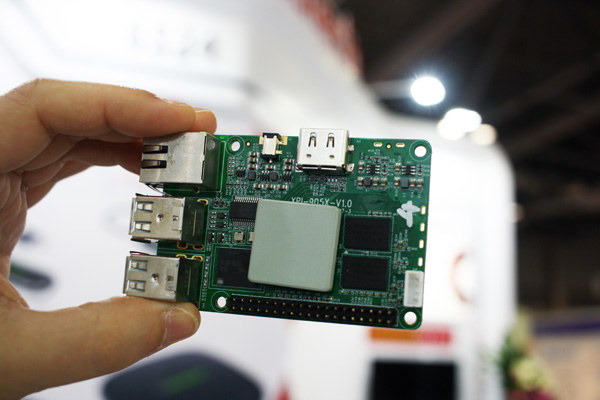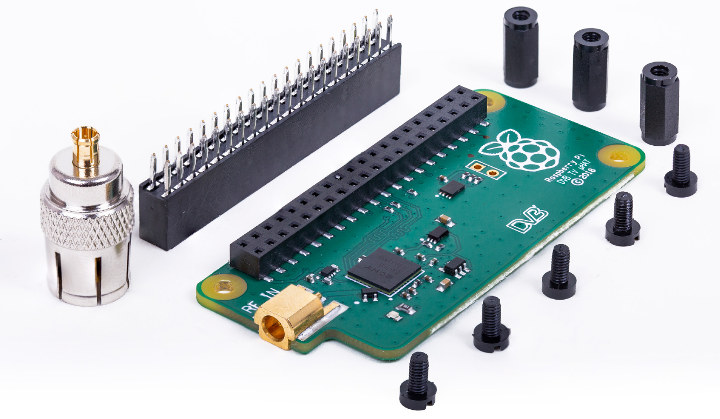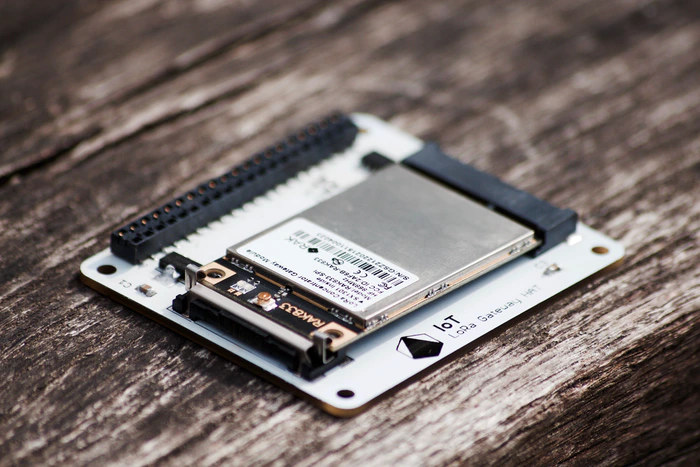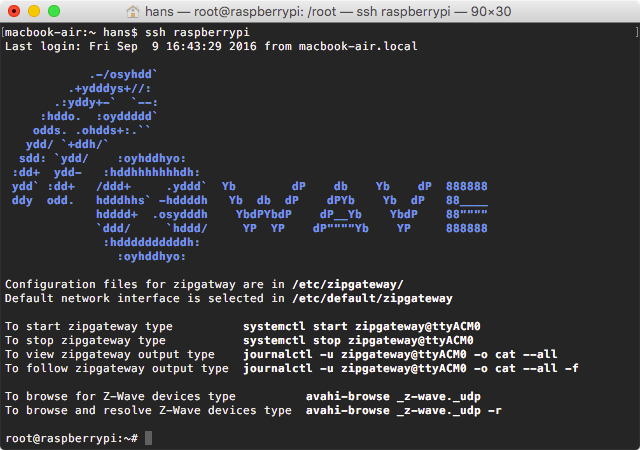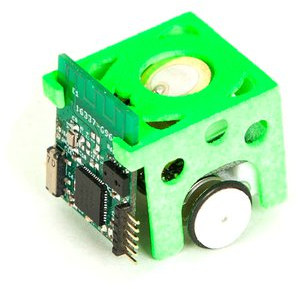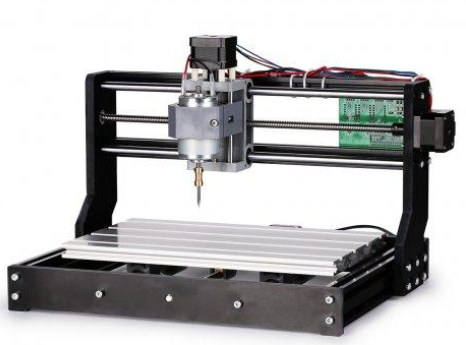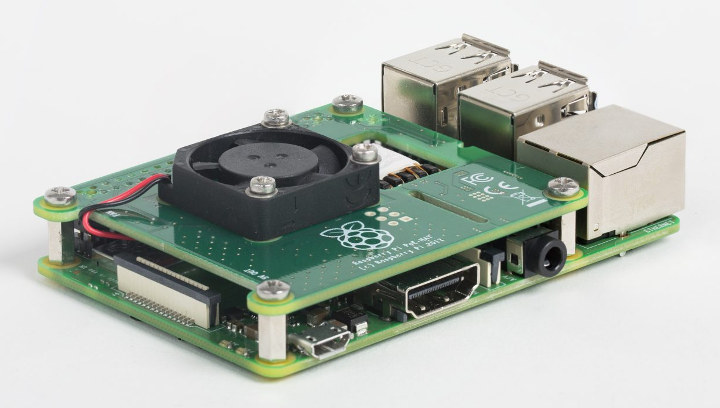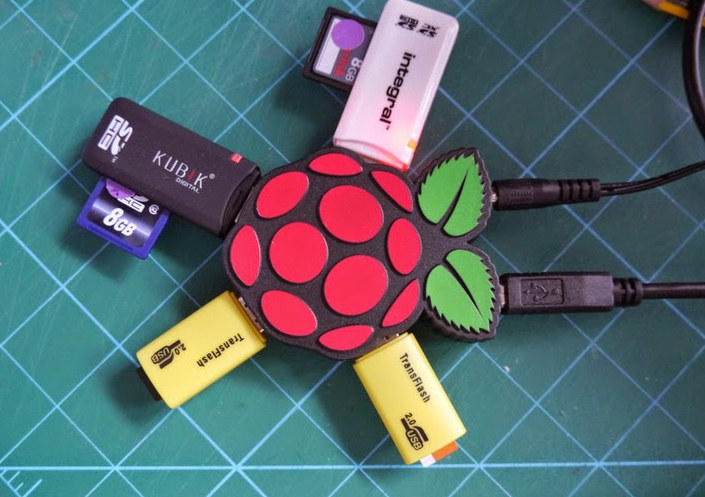Geniatech is well known in the media player industry for their Amlogic based TV boxes, but in recent years, they’ve also launched some development board from other silicon vendors such as Qualcomm with Developer Board IV and Developer Board 8 powered by respectively Snapdragon 410E and 820E. The company has now launched the XPI family of single board computers that will allow closely follow Raspberry Pi 3 form factor while offering better performance and features. Geniatech will start with XPI-S905X board powered by an Amlogic S905X quad core Cortex A53 processor @ 1.5 GHz with 4K HDR video playback and output capability. Geniatech XPI-S905X board preliminary specifications: SoC – Amlogic S905X quad core ARM Cortex-A53 processor @ up to 1.5 GHz (but they claim 1.6 to 2.0 GHz max…) with penta core ARM Mali-450MP GPU, and Amlogic Video Engine 10 System Memory – 1GB or 2GB (default) DDR3 RAM Storage […]
Raspberry Pi TV HAT Adds a DVB-T2 Tuner to Raspberry Pi Boards
The Raspberry Pi foundation has just launched another official HAT for their maker boards with the Raspberry Pi TV HAT based on Raspberry Pi Zero form factor, and is equipped a DVB-T2/T tuner in order to convert your board into a Linux based digital TV receiver and recorder. Raspberry Pi TV HAT specifications: Sony CXD2880 TV tuner Supported TV standards DVB-T2 (1.7MHz, 5MHz, 6MHz, 7MHz, 8MHz channel bandwidth DVB-T (5MHz, 6MHz, 7MHz, 8MHz channel bandwidth) Reception frequency: VHF III, UHF IV, UHF V RF coaxial input for antenna connection RPi Interface – 40-pin RPi header Dimensions – 65 x 30 mm (half-size HAT) Operating temperature – 0–50°C The Raspberry Pi TV HAT is also known as the Raspberry Pi DVB TV μHAT based on the markings on the board’s silkscreen. The add-on boards follows a new HAT specification called the “half-size HAT” matching Raspberry Pi Zero board’s dimensions. Instructions to use […]
Pi Supply IoT LoRa Boards are made for Raspberry Pi & BBC Micro:bit Boards (Crowdfunding)
We’ve already covered plenty of LoRa boards or solutions designed for nodes or gateways such as TTGO T-Beam ESP32 + LoRa board, RAK Wireless RAK811 GPS Lora tracker board, MatchX Matchbox LoRa gateway, and many others,, but Pi Supply offers yet more options with LoRa node and gateway add-on boards designed to work with Raspberry Pi, Arduino, and BBC Micro:bit boards. Pi Supply LoRa Gateway HAT for Raspberry Pi The IoT LoRa Gateway HAT is based on RAK Wireless RAK833 mPCIe LoRa gateway concentrator module and connects to Raspberry Pi 3 B/B+ board via the 40-pin header. There are two hardware version using 868 MHz or 915 MHz frequencies, but as we’ve seen in previous reviews those are configurable for other frequencies such as AS923 or IN865. Pi Supply IoT LoRa Node pHAT for Raspberry Pi LoRa Node pHAT is designed for node specifically, and with a smaller form factor […]
Silicon Labs Releases Z-Wave Public SDK, Raspberry Pi 3 Image
Z-Wave is a wireless communication protocol initially developed by Zensys, before being purchased by Sigma Designs which provided Z-Wave compliant chips, and this year Silicon Labs purchased Z-Wave from Sigma Designs, Z-Wave is fairly popular in the US, and the Z-Wave alliance has certified around 2,400 products so far. However, we seldom hear about hobbyist projects featuring Z-Wave because the wireless protocol is proprietary, documentation was not available publicly, and you’d also need a few thousands dollars to get started: $4,000 a year to be a Z-Wave Alliance member, $2,500 for certification, and the development kit sells for about $2,000… But in 2016, things improved with Sigma Designs releasing Z-Wave Application Layer specifications publicly, as well as Z-Wave over IP (Z/IP), Z-Ware Middleware, and the Z-Wave S2 Security Specification. But you still needed to acquire the Z-Wave SDK and obtain access to the Z-Wave Technical Support website and the Z-Wave […]
Skoobot is a Tiny Robot with BLE Connectivity and Sensors (Crowdfunding)
If you want to get started with robotics either for yourself, or maybe teach children, Skoobot robot could be an interesting option. It’s extra small with a 2.5 cm cubic shape, support Bluetooth Low Energy, and includes some sensors like ST VL6180 distance and ambient light sensor, and a microphone. Skoobot hardware specifications: MCU – Nordic Semi nRF52832 Arm Cortex M4F microcontroller with 512KB flash, 64KB SRAM Connectivity – Bluetooth Low Energy (built into nRF52832) Sensors ST VL6180X distance sensor (0 to 10 cm range) and ambient light level sensors Knowles microphone for word and beep recognition Two motors and wheels Misc – Buzzer Battery – Yes (no capacity specified) Dimensions – 2.5 x 2.5 x 2.5 cm A separate companion board is also provided to handle charging, UART and J-Link mode debugging and programming. The robot can be controlled from an Android app, or a Raspberry Pi board using […]
Genmitsu CNC 3018-PRO CNC Router Review – Part 1: Build & First Etches
Hey Karl here. Today we are going to look at something a little different. I am writing about my experiences with building Genmitsu 3018 CNC router upgraded version provided by Sainsmart for this review. While waiting on the unit to arrive I did some research and found that there are several different versions on the market labeled CNC xxxx. The xxxx represent the build volume in the x and y. So the one I was sent has a 300x180mm build volume. The 3018 is called upgraded because the new mounting for the X and Y rods and lead screws. On the previous version these had to be mounted and manually aligned which from what I read can be a pain. Building Genmitsu CNC 3018-PRO CNC Router The build went very well. The 3018 user manual was mostly pictures but they called out anything that might be questionable. I had been […]
Raspberry Pi PoE HAT Launches, But Refunds Offered due to Power Issues
The Raspberry Pi foundation has launched a good number of boards and accessories, and although some people will question some of the design choices, their boards were fairly bug-free hardware-wise at launch, except for minor issues like the board rebooting while taking a photo with a Xenon flash. Recently they also had performance issues with Gigabit Ethernet in the Raspberry Pi 3 B+ board, but that looks like more of a software issue. The Raspberry Pi PoE HAT announced with Raspberry Pi 3B+, but launched at the end of August for $20, however suffers from a more serious issue as it somehow limits USB current to 200mA instead of the usual 500mA, meaning that’s fine with USB keyboard and mouse, but as soon as you connect more power hungry peripherals like a USB hard drive, all hell breaks loose. Let’s check out the specifications first: 802.3af PoE Fully isolated switched-mode […]
How to Make a Low Cost DIY SD Card Duplicator
If you have to duplicate many SD cards for example to boot Raspbian on multiple Raspberry Pi board, one option is buy one of those SD card duplicators, but the problem is that they are not really cheap, for example the Systor 1-to-7 cards model sells for $540. Bob Brown, a retired senior lecturer, is now teaching K-12 students how to get started with Raspberry Pi boards, and must prepare bootable SD cards for his class. In order to save time, a duplicator would have been nice, but the price is too high, so instead he went with a DIY solution. You’ll first need some hardware, including a powered USB hub with the number of cards you want to duplicate, and corresponding SD card reader, and a larger micro SD card to hold Raspbian and/or other operating systems (optional, only for Raspberry Pi based duplicator). Mr. Brown made a 10-port […]


